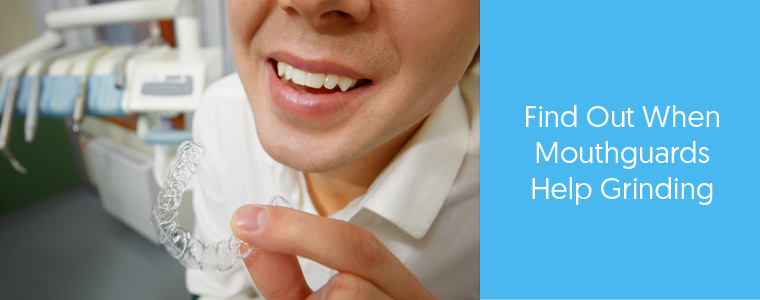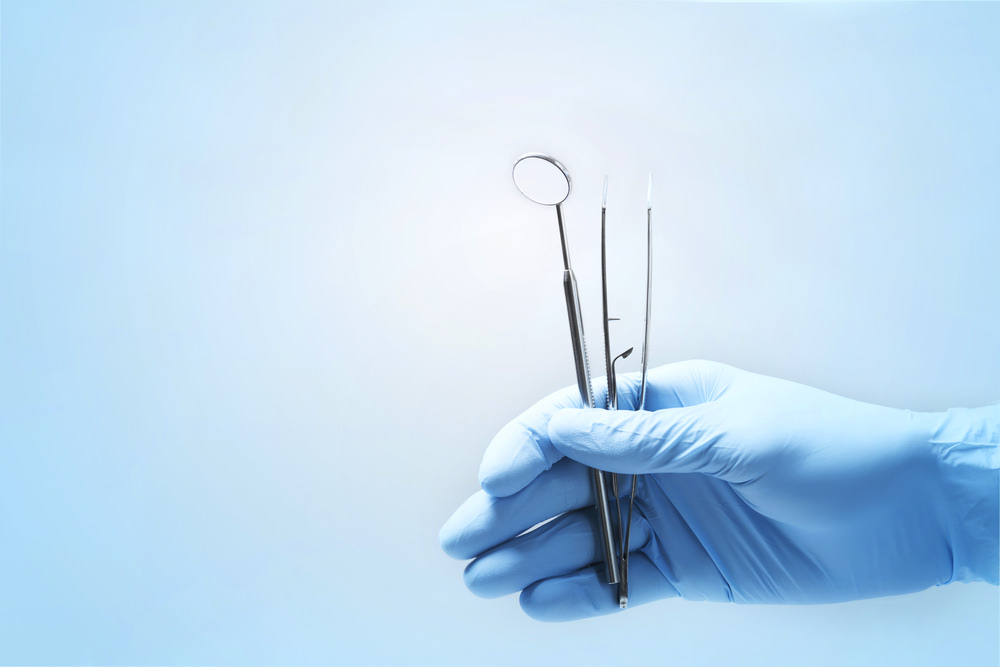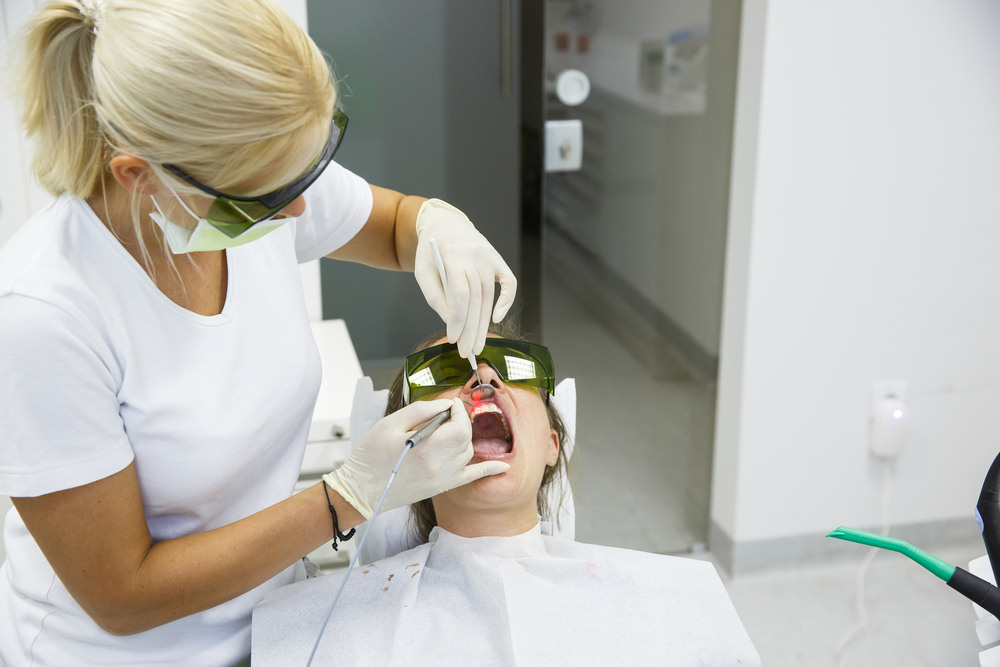Do You Need a Night Guard for Grinding?
Teeth grinding – it is a dental condition which can lead to serious complications for your oral health.
Many say that a simple solution to stop the habit is to wear a custom-made night guard, but is this really the answer?
If you’re grinding your teeth, the first and best thing that you can do is to find out why.
Stress, anxiety, snoring, or obstructive sleep apnoea – these are all different causes for teeth grinding, and all have different ways the problem can be solved, with or without the night guard.
Today’s topic of discussion is teeth grinding – what it is, the causes behind it, and how to know if a night guard is (literally) your best fit.
What is Grinding?
Teeth grinding – also known as bruxism – is involuntary habit of grinding of your teeth, particularly during your sleep.
Because it occurs whilst you are asleep, you may be totally unaware that you are doing it.
Unfortunately, it can cause serious problems for your dental health, including the wearing down of your tooth enamel and temporomandibular joint dysfunction (TMJ) disorder, all of which will end up causing you high levels of pain and discomfort.
The extra pressure which you are placing on your teeth may also require you to need additional dental work, such as fillings and crowns.
So, is teeth grinding still an issue for concern, even if you are unaware of it?
Due to the future problems it can lead to – the answer is a definitive yes.
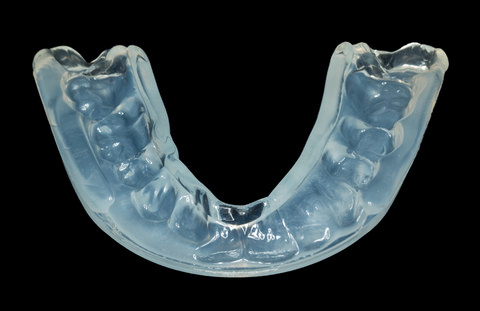
A night guard for your teeth
What is Causing your Grinding?
If you believe it, a long long time ago, people used to sleep in trees!
That is why, when you’re asleep, you only have two muscles that can activate, and the rest of them are paralysed.
One of the muscles that move are your eye muscles – hence why you get rapid eye movements – and the other is your lateral pterygoid, which actually moves your bottom jaw.
If your bottom jaw is moving around, it is most likely that you are trying to open your airway because you are not getting enough oxygen.
Under these circumstances, you will need to be assessed – you could have an issue with snoring, or you could have obstructive sleep apnoea.
Grinding and snoring are both a sign of obstructive sleep apnoea, meaning your oxygen levels are low during your sleep.
Sometimes you may even temporarily stop breathing whilst sleeping, preventing your brain from getting enough oxygen and increasing your risk of a stroke or heart disease.
This is something you should get attended to immediately – it’s a problem with your airway that needs to be attended to, ASAP.
The other main causes of teeth grinding are actually stress and anxiety. Over time, you will pick up a habit of clenching your jaw and grinding your teeth and will begin to do so even in your sleep.

A Dentist fitting a night guard
Should I get a Night Guard for my Grinding Habit?
It really is the personal opinion of your Dentist – some like to give their patients night guards, and some do not.
Disadvantages to wearing a Night Guard
- They are expensive
- You can easily lose them
- Can cause your mouth irritation
- They are hard to take care of, as they have to be cleaned regularly
- Quite hard to remember to wear consistently every night, and not every person continues with the proces
As such, many Dentists’ would rather find the cause of the problem – for example, if you are grinding because your teeth are misaligned, they would rather fix your bite than give you a night guard.
However, many Dentists’ will hand them out on a regular basis, especially to patients who have been wearing theirs accordingly for a number of years.
Advantages of wearing a Night Guard
- It is seen as a simple treatment – it can be custom fitted for your own teeth from plastic and wearing it while you sleep will prevent your teeth from scraping together
- You are actually addressing the problem early by wearing a night guard, so you are preventing any damage getting worse with time
Night Guards for Sleep Apnoea
Some people with sleep apnoea use a CPAP machine, which is made to keep the airway open at night.
However, if you only have mild sleep apnoea, a custom-made mouthguard is going to provide a similar effect – it will push your lower jaw and tongue forward, which keeps your airway open.
Some night guards even have a strap to put around your head and chin, which will alter the position of your jaw, giving your airway that additional room it is looking for.
Night Guards for Snoring
Some people that have problems with snoring will try using an external nasal dilator – that is, a nasal strip or adhesive bandage with splints that attaches to the bridge of your nose and side of your nostrils, keeping your airway open whilst you sleep.
However, a night guard can assist in reducing problems with snoring.
Snoring occurs when the soft tissue in your upper airway vibrates. As the night guard for snoring has a very similar effect to a night guard for sleep apnoea – that is, it will pull your lower jaw forward, keeping your airway open – this will help reduce the vibrations in your upper airway, stopping any problems with snoring.
Night Guards for Stress and Anxiety
Many people use natural therapies to try and reduce teeth grinding caused by stress and anxiety. These include muscle relaxation exercises, or Cognitive behavioural therapy (CBT).
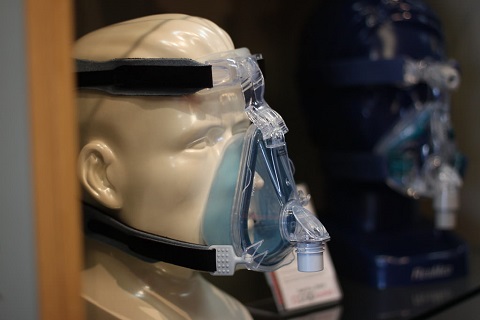
A CPAP machine when someone has sleep apnoea
However, the results of these procedures are not instantaneous. You will find that a night guards is quite effective for stress and anxiety, as they help keep your top and bottom teeth separated so you don’t damage them from the pressure you are creating whilst grinding and clenching.
They also help reduce any pain you may be feeling, helping to actually reduce any levels of stress and anxiety you may be feeling.
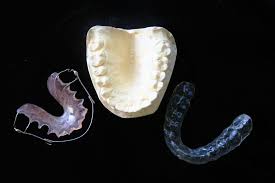
A night guard from an dental impression of your teeth
Are you Still Unsure?
If you are still unsure about whether you want or need a night guard for your teeth grinding issue, talk with your Dentist about trialling a “boil and bite” mouthguard for a few nights.
These are the type of mouthguards you can purchase from your Chemist, that come in a ‘one-size-fits-all’.
You customise it to fit you by boiling it in hot water until it softens, then placing it on your teeth and biting down.
It is a cheaper option, and you can use it to see if it seems to help. If, after several days, you’ve found that you like the use of it, then you can talk to your Dentist about getting a custom fitted night guard.
What else are Mouthguards good for?
Mouthguards are great for us in the Dental clinic to use as a diagnostic tool – for example, if you are grinding, your bite could be higher on one side.
This means one tooth is out of alignment, which is the source of what is irritating you, and could be what is causing you to grind your teeth at night.
A night guard can help your Dentist diagnose the source of your problem and get to work on fixing this.
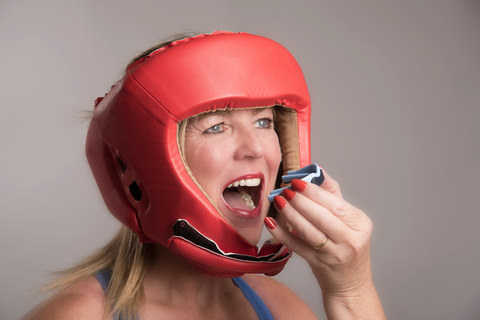
A woman wearing a mouthguard for a sporting event
Mouthguards are also great to prevent you from any injuries during sports such as football, soccer, boxing, or hockey.
You can purchase one from your local sports store, however, it’s much better to get a custom mouthguard made, safer as well!
That is, of course, unless you have braces – then it is best you get one custom made from your Dentist.
Conclusion
Night guards require a lot of work to keep them clean and prevent them from damage – and whatever you do, make sure you keep them out of the dogs’ reach!
They also do not last forever – they require replacing every two to three years. It is a lot of upkeep just remembering to put them in and wear them to bed – EVERY. SINGLE. NIGHT.
If you consider yourself capable of keeping up with all of the work they require on a daily basis, then night guards may be the solution for your teeth grinding as they do offer you a great source of protection.
If unsure, talk to your Dentist – they may offer you other solutions for your problem, quite possibly in the form of diagnosing the cause and working on that.
Either way, you’re bound to leave the Dentists’ office with the key to a better night’s sleep!
Do you think you’d give a night guard a go?
By Dr. V
Created at October 11, 2019, Updated at January 25, 2025


